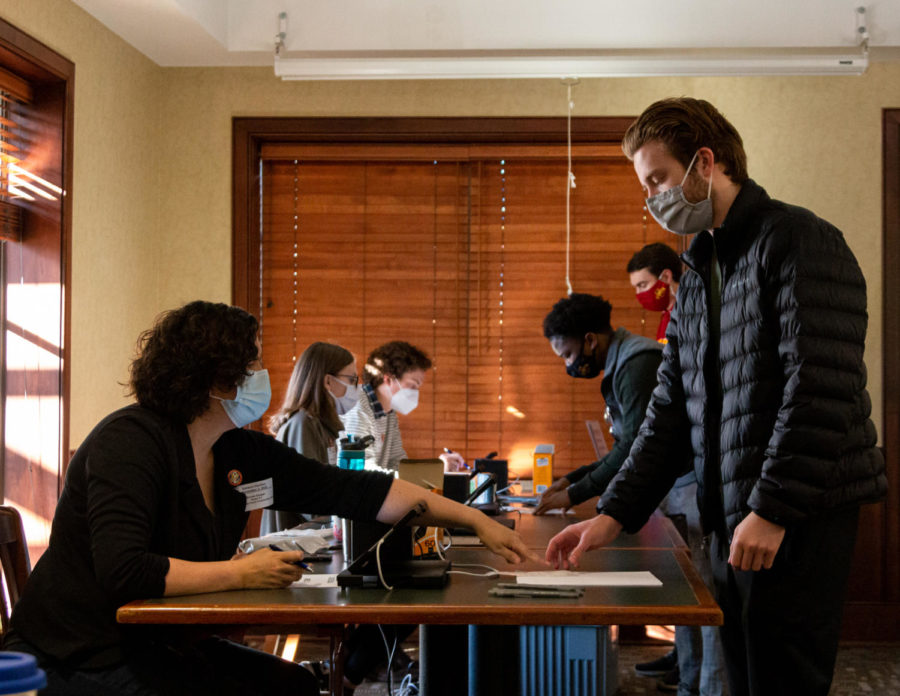Iowa State’s GO VOTE competition to conclude Wednesday
Iowa State’s GO VOTE competition aims to encourage student voter turnout in future years using strategies created by teams participating in the competition.
April 13, 2021
Six teams competing in the Iowa State Student Innovation Center’s GO VOTE competition will present their projects to a panel of judges Wednesday.
The competition is sponsored by the Student Innovation Center, the Carrie Chapman Catt Center for Women and Politics and the political science department.
The Student Innovation Center’s goal is to do things “for students, with students, by students,” said Karen Kerns, director of innovation programs. It supports students and works to engage them in building projects and gaining insight.
In addition to a number of projects, Kerns and the Student Innovation Center are looking at the messages and mediums needed to motivate students to vote.
The voter numbers for STEM students in particular on campus are lower than they should be, Kerns said.
“Our campus does not do well in [voter turnout] in the STEM fields and even nationally — particularly male engineers,” Kerns said.
Kerns collaborated with Karen Kedrowski, director of the Carrie Chapman Catt Center for Women and Politics; Mack Shelley, chair of the political science department; and Kelly Shaw, associate teaching professor of political science, to design the GO VOTE competition.
For the competition, six teams conducted research, problem analysis and assessment, defined the problem and designed a solution or platform that would address the problem. The teams then developed a message and a medium to alleviate the problem.
Once this work was completed, every team tested their solution.
“The goal is to scale what they did and deliver it in the fall,” Kerns said.
Each team will give a virtual presentation Wednesday to a panel of judges. The presentations will include an analysis and insight into why certain groups of students vote less.
Winners will be chosen based on a set of eight criteria.
Teams must define the problem, collect data, provide insight and test their solution. Judges will be evaluating the teams based on how compelling the teams’ message is, the effectiveness of their medium and whether teams have already begun to influence people.
The final criterion teams must meet is that their strategy must be ready to launch for the fall and needs to be something that can be used annually.
The GO VOTE competition winners will be announced Friday.

















